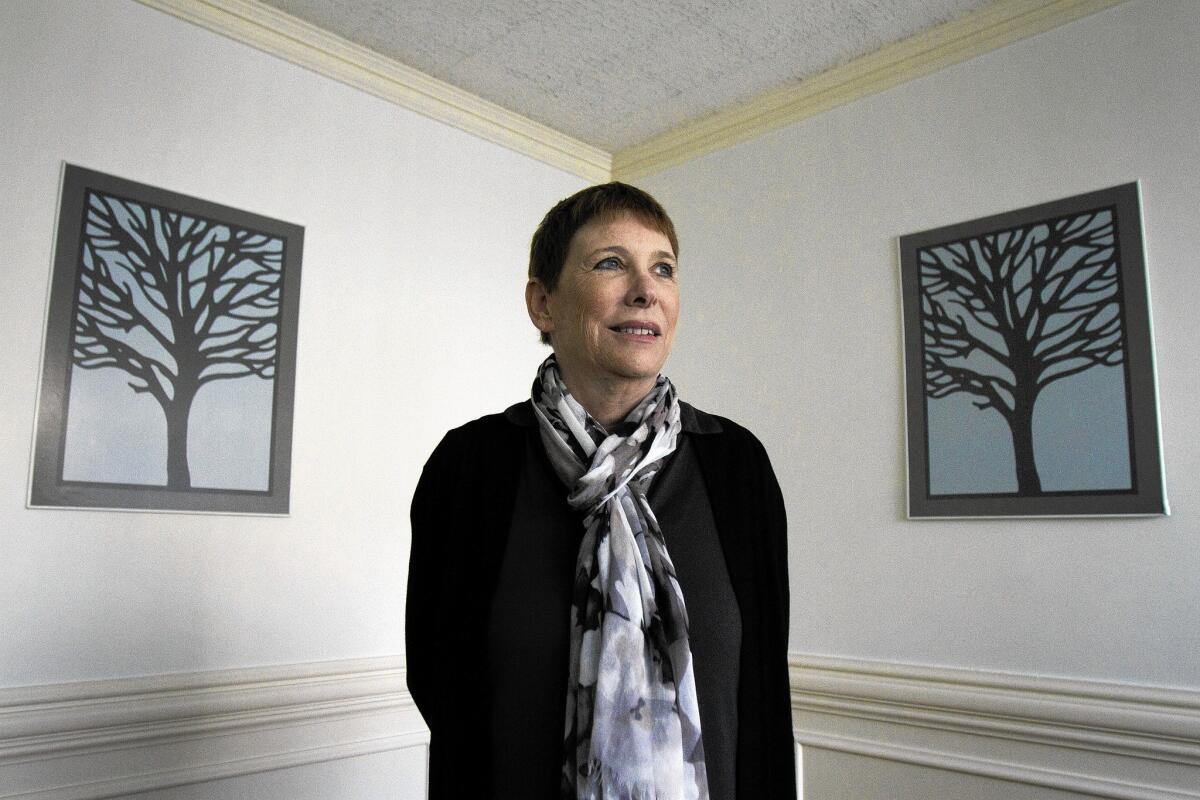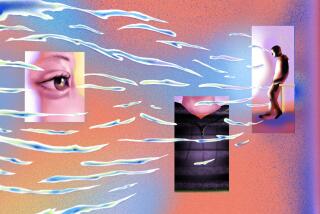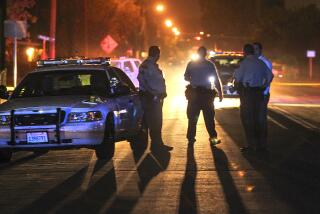California adoption laws hinder a woman’s quest for the truth

Marsha Temple will soon fly to Philadelphia, trying to crack a case she’s been working on for decades. She’d like to know who her biological father was.
Temple has a pretty good hunch he may have been a child evangelist in Philadelphia nearly a century ago, so she plans to dig through files there with the help of her husband, KCRW radio host Warren Olney, who serves as Watson to his wife’s Sherlock.
The two have traveled great distances in the U.S. and to Poland and Ukraine, pursuing an obsession that for Temple, 68, began many years ago in the San Fernando Valley.
“Almost as soon as I could talk, my adopted mother told me, ‘You are adopted. Your real mother didn’t want you, but we want you,’” said Temple. “So imagine what a cascade that sets off in someone’s head. Why didn’t my mother want me?”
Temple recalls an unhappy childhood with her feuding adoptive parents in what became a broken home. She vowed early on that she would get out as soon as she could, and that she would find “my people” and learn the story of her adoption.
That’s no easy task in California, which doesn’t allow adoptees access to records. But legislation drafted by Temple, an attorney, would change that. I’ll get to the details in a minute.
When Temple began her search, she had a single clue to work with. She had been told her biological mother’s name was Jeannette Smith. Later, a family friend suggested the name might have been Kroeker, not Smith.
One day in 1989, Temple was reading The Times in her Westside home when she saw a story about an LAPD deputy chief who had established an international organ-transplant fund. His name was Mark Kroeker, and she studied his photo.
“I thought he looked something like me,” Temple said.
But what were the chances? She put it out of her mind for a few years, until on a whim, she asked Olney if he would call Kroeker.
Kroeker recalls the conversation.
“Warren said, ‘This is going to sound a little strange, but my wife believes she’s related to you.’”
It did sound strange, said Kroeker, but he was willing to talk to her.
Olney handed the phone to Temple, who told her story and mentioned the name Jeannette Smith.
“I told her Jeannette Smith is my father’s sister,” Kroeker said. “Jeannette was a Kroeker, and she met a man named Smith.”
And Temple said:
“Well, hello, cousin!”
After meeting Temple in 1993, Kroeker arranged for her to talk with his Aunt Jeannette, who was living in Carmel.
Smith, then 87, invited Temple to visit her, and when Temple landed at the airport in Monterey, her mother was waiting.
“We looked alike,” said Temple. “A lot alike.”
Smith told Temple her story, about how as a young teacher, she’d had a brief affair with a serviceman by the last name of Hall, who probably never knew she got pregnant. Smith put the baby up for adoption and went on. But through her life as a teacher and eventually as a mother again, she never forgot about the child she gave up.
For Temple, meeting her mother ended years of longing. She came to realize, after several visits, that the reunion was even more important for her mother. After a visit by Smith to Temple’s home in Los Angeles, Temple found an index card under a seat cushion on which her mother had written: “Redeemed from shame, guilt, self-loathing.”
When Smith died in 2000, Temple was at her side.
Temple’s new family of cousins humbled her with their loving embrace. Kroeker says Temple has a habit of closing her eyes while formulating an answer, just like another of his cousins. At a gathering of 12 cousins, Temple learned that eight are doing or have done missionary work. Temple runs the Integrated Recovery Network, which helps keep people with mental illnesses from jail and homelessness.
Temple’s search for her biological father, a man her mother could tell her little about other than that his last name was Hall and that he’d been a child preacher, has been more complicated. She’s researched hundreds of Halls.
Olney recalls attending a Tennessee church service led by a fire-and-brimstone preacher known as Brother Hall. The California visitors must have looked out of place, Olney says, because one curious worshipper approached with a question.
“Just passin’ through?”
Brother Hall, now deceased, insisted Temple couldn’t be his daughter, and he eventually agreed to a blood test that proved him right.
Temple has since come to believe her father was from Philadelphia and died many years ago. She is treading carefully, knowing that if she’s right, her very existence could come as a shock to his survivors. Still, she has a fervent wish to know for sure, and she believes many of California’s thousands of adoptees do, as well.
She supports a bill introduced by Assemblyman Sebastian Ridley-Thomas that would allow access to information without court intervention. He said nine other states allow access, and despite understandable privacy concerns on the part of some biological families and adoption agencies, he and Temple believe there should be at least minimal information available to those who want it.
“You’d get to know the name, but you aren’t entitled to a relationship,” said Temple. “What this is all about is knowing the truth.”
More to Read
Start your day right
Sign up for Essential California for news, features and recommendations from the L.A. Times and beyond in your inbox six days a week.
You may occasionally receive promotional content from the Los Angeles Times.







